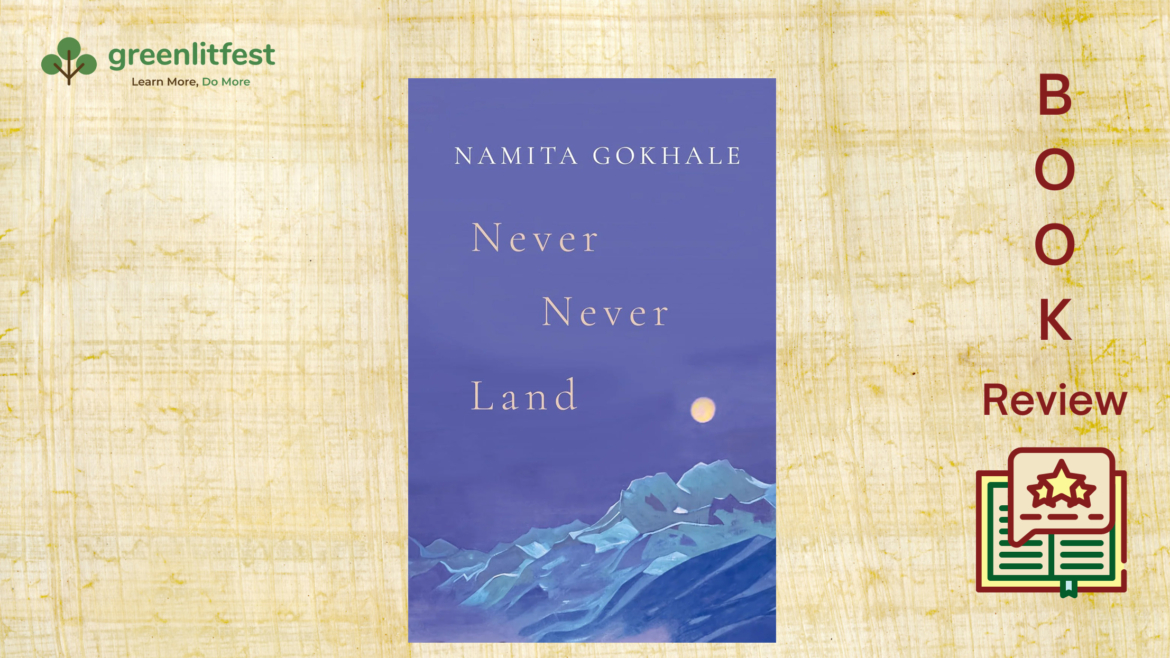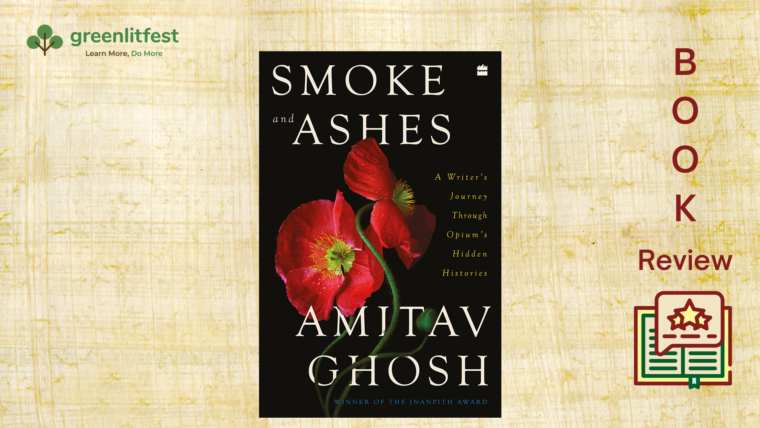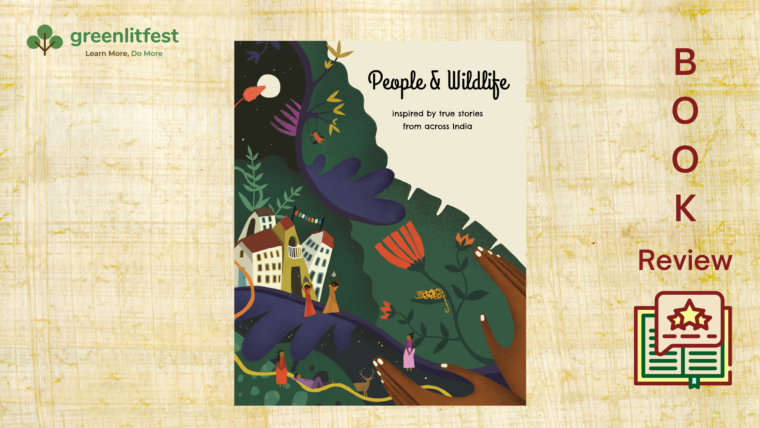By Sharanya Manivannan
Despite being bitter in mid-life – resenting the young, prone to moodiness, and lodging alone in a room in Gurgaon in a routine and a climate she finds dreary – Iti Arya isn’t trapped by either her outlook or her circumstances. When she senses one night that she must return to Kumaon, to the Himalayan mountains of her childhood, she simply takes off the next morning – all her deadlines left lingering, heeding her desires. Yet the protagonist of Namita Gokhale’s slim novel Never Never Land is intriguing because she isn’t painted as a maverick. She is simply an ordinary woman, a freelance editor who dislikes Whatsapp groups but lurks on them anyway, has been unsuccessful in love, and has dreams of a less stifling life. Cynicism blended with a deeply romantic sensibility define the character. Iti charms because she is like most of us – not a heroine, just someone who longs for the hills now and then.
Back in Kumaon, Iti goes to The Dacha – the home of Rosinka Paul Singh, a dowager of foreign extraction, where Iti’s grandmother Badi Amma has spent most of her life working as a housekeeper and companion. She has been in this cottage and in these spaces that inform her interior landscape – “I dreamt of the mountains, of jagged pines and blue skies and the whispering wind” – through all the stages of her life. Despite the two elderly women who signify home to her, Iti imagines the mountains as bearded old men who whisper wisdom; her connection with the natural world is personal in a non-performative way. She arrives after her journey into what appears to be a serene setting in which two matriarchs co-exist, but things are not as they seem at The Dacha. Some elements are new to Iti – such as the presence of a young woman, Nina, whom she has never heard of but who claims to be a relative – but both old darkness and fresh nostalgia jostle for their places in that house.
Iti is not always a reliable narrator. She is smitten by and loyal to both Rosinka and Badi Amma, to the detriment of her own discernment skills. She romanticizes a sexual assault from her school years. This does not frustrate the reader. Rather, her oddities come together well, and the character is rendered as recognizable and multi-faceted. Iti is a little sad, a little spiteful, and deeply in touch with her own longings. The last may make life disappointing for her, but it is also the reason that mediocrity hasn’t overwhelmed her: she finds pockets of beauty to lighten the heart through her meanderings.
Slowly, a true picture of The Dacha, its inhabitants and their context in place and time emerges, with details that trickle out little by little, gathering momentum as the book progresses. Although a short novel, Never Never Land packs a punch in its quiet reproach of everything from extractive and exploitative practices to climate change. It begins deceptively, then lets a deep-rooted ugliness be revealed in a way that comes neither as a shock nor as predictable.
Iti’s sojourn, her return to all the strangeness and familiarity of The Dacha, isn’t short. She reenters the environment and cannot merely be a visitor. The difficulties of life in this region are endless: everything from spotty internet reception to the threat of leopard attacks, and she muses, “Nature seemed too close for comfort. This was not a romantic idyll – it was a struggle, a battle.” She also returns to her family origins, gaining a deeper understanding of who Badi Amma really is and what her life has actually been like. Iti may be a snob when it comes to typos and may have been raised to put her background behind her and become urbanised and upwardly mobile, but she comes from working-class, “Pahadi” people. People whose connections to the mountains have not merely been bought. Attempts to blur the distinctions between those who come from the land and those who essentially colonize it – even if they do so under genteel pretexts, such as love of folklore, philanthropy or admiration of nature – do not hold water for long. Indeed, like the landscape itself – besieged by the greed of those who already have much – such fragile accords erode.
“They call it climate change and global warming and sterile words like that, but it is more than that. It is the wrath of the gods.” Towards the end of the book, Iti reflects on this wider picture and on what Badi Amma has told her about how the mountain gods will have their revenge on those who stake claims without true belonging: “They will push them over the cliffs, they will bury them under landslides, they will drown them in the overflowing rivers… If they still don’t understand… they will set the forests on fire. They will reclaim our sacred land and make it green and young again.”
Still, at The Dacha, despite these large and looming collective realities, there are other obvious mysteries and secret hatreds, open warfare and closed chapters. There are links between people, links of a complicated nature. These are not bonds forged only of love but are more like treaties: a tangled set of negotiations, disclosures, wiles, forgiveness, denial and ultimately, basic human interdependence. Love exists too – or co-exists, amidst all of this. Gokhale expertly delineates these contradictions in this thought-provoking and adroitly executed novel. Its true power is very subtle; one turns the last page and senses the deeper anger at the heart of this book, irrevocably mingled though it is with the inexplicable motives of human attachment.
Sharanya Manivannan is a writer and illustrator. Her books include The Queen of Jasmine Country and Incantations Over Water. www.sharanyamanivannan.in



